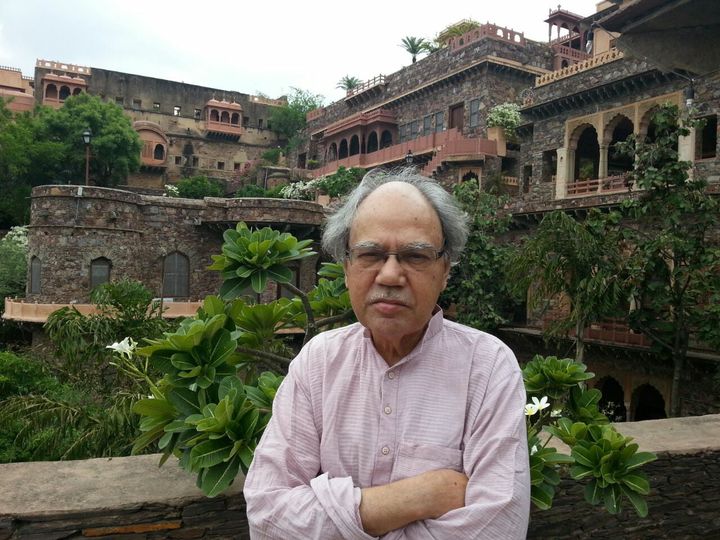Shamim Hanfi was a leading Urdu Critic, dramatist & one of the leading voices of Modernist movement in Urdu Literature.
…As one of the greatest advocates of bonhomie between Hindi and Urdu he travelled worldwide to express his views. His articles on this subject have been published across the globe and he participated in talk shows, discussions and also participated in events like Hindi Urdu Flagship programme of University of Texas (USA).
Shamim Hanfi maintained that Hindi and Urdu are historically close to each other but politics has created a rift between them. He was of the opinion that a curriculum should be designed where both Hindi and Urdu should be taught together as this will bridge the gaps between the two languages and also revive the mutual tradition of both the languages. He emphasised that there is a need to protect both the languages from religious extremism and politics. He was of the view that if both Hindi and Urdu respect each other’s space and don’t intrude then both the languages will flourish and complement each other in the best possible way.
His books on Modernism like “ Jadeediyat ke Falsafana Ahsaas”, “Jadeediyat aur Nai Shairi” and “ Nai Sheri Riwayat” are considered as the most path-breaking and profound work.
Shamim Hanfi noted that In the Modern world, we have seen the world being split into blocs with new boundaries coming up every now and then but as far as literature is concerned , there are no boundaries , “Literature is the common heritage of all societies regardless of caste, colour, creed or race”. He further said, “Books respect our solitude”.
Nasir Abbas Nayyar quoted ” Throughout his critical writings, we find him reiterating that “Adeeb ka samna jeeti jagti zindagi say hae’’ (a writer has to encounter the daily reality). This may account for his aversion to retrieving ideas from literary texts. To him, the act of reading poetry was not social or cultural but personal. Poetry, he said, spoke to our senses, to our soul, to our whole being. In poetry, the divide between body and soul, present and past, becomes redundant. However, he was not oblivious to the fact that creative experience is not just psychological but also embedded in a tehzeeb. He had an aversion to history and psychology and at times would not hesitate to scold those engaged in studying literature in the perspective of extra-literary disciplines. He was all praise for contextualising poetry and fiction in their respective tehzeeb and its values.
It was his love for literature rooted in a jeeti jagti zindagi that led him to realise the significance of the writings of Bengali Hungry generation poets, Dalit writers, Black writers, and African and Latin American writers, for all these writers portray their immediate, real, ordinary, existing reality.”
Shamim Hanfi maintained that extremism in following the classics or modernists or even the progressive was harmful. He looked at the critics’ role and is of the view that critics had learnt jargons, which they had borrowed from different sources, which had made them unable to come up with something worthwhile. He held the opinion that intellectual Extremism had crept into writers in their endeavor to get closer to power centres.
Shamim Hanfi was not only a well-versed scholar of English, Persian and Hindi, but also a connoisseur of music, painting and theatre. Unlike some contemporary critics, he did not believe in formulating different canons for classical and modern literatures. He held that literariness was where classicism and modernism converged.
He also served as the member of AMU court in 2010.



